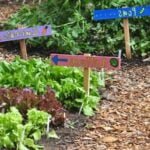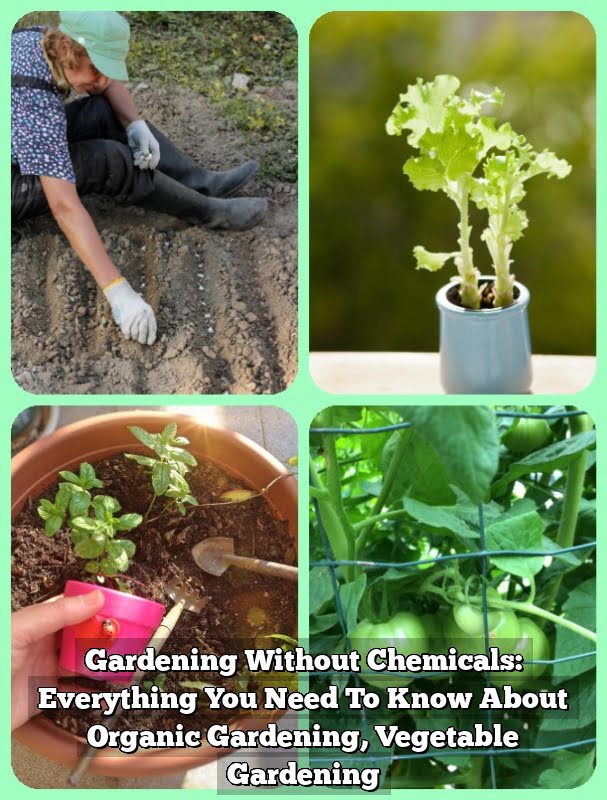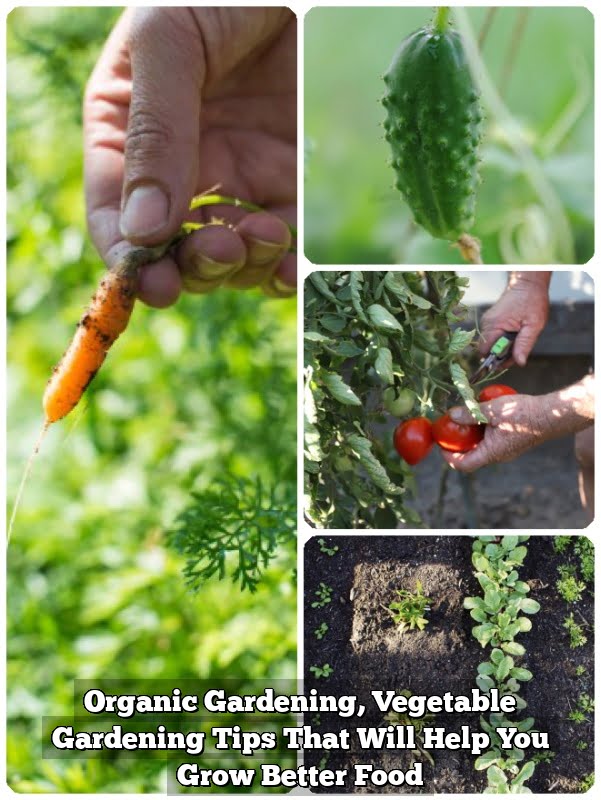Are you interested in starting a vegetable garden in New Brunswick? Whether you’re a seasoned gardener or a beginner, vegetable gardening in New Brunswick offers a unique and rewarding experience. From the region’s climate to the best vegetables to grow, there are many factors to consider when embarking on this green journey.
New Brunswick’s climate poses both challenges and opportunities for vegetable gardening. With its temperate climate and distinct growing seasons, it’s essential to choose the right vegetables that can thrive in these conditions. Additionally, understanding the local soil and water resources are crucial for successfully cultivating a vibrant and healthy garden.
In this article, we will explore the ins and outs of vegetable gardening in New Brunswick. From tips on starting and maintaining your garden to dealing with common pests and diseases, we’ll provide you with the knowledge and resources needed to cultivate your own homegrown produce. So, whether you have a spacious backyard or just a few pots on your balcony, get ready to dig in and discover the joys of vegetable gardening in New Brunswick.
The Best Vegetables to Grow in New Brunswick’s Climate
When it comes to vegetable gardening in New Brunswick, it’s important to choose the right vegetables that can thrive in the challenging climate of the region. The short growing season and cool temperatures can make it difficult for some vegetables to reach maturity, but there are still plenty of options for successful cultivation.
Root Vegetables
Root vegetables like carrots, beets, and potatoes are well-suited for New Brunswick’s climate. These hardy crops can withstand the cooler temperatures and often even improve in flavor after a light frost. They also store well, making them a practical choice for gardeners looking to enjoy their harvest throughout the winter months.
Leafy Greens
Leafy greens such as lettuce, spinach, and kale are another excellent choice for New Brunswick’s climate. These vegetables can be planted early in the spring and harvested before the hottest summer temperatures arrive. With proper care and protection from pests, these crops can provide a bountiful harvest throughout the growing season.
Cruciferous Vegetables
Cruciferous vegetables like broccoli, cabbage, and Brussels sprouts are also well-suited for New Brunswick’s climate. These cold-hardy plants can tolerate lower temperatures and even benefit from a light frost. By choosing these resilient vegetables, gardeners in New Brunswick can enjoy an abundant harvest of nutrient-rich produce.
By selecting the right vegetables suited for New Brunswick’s climate, gardeners can set themselves up for success and enjoy a fruitful harvest despite the challenges of the region’s unique weather patterns.
Tips for Starting a Vegetable Garden in New Brunswick
When starting a vegetable garden in New Brunswick, it’s essential to consider the unique climate and growing conditions of the region. The first step is to choose a suitable location for your garden. Look for an area that receives plenty of sunlight and has well-draining soil. It’s also important to consider the wind patterns in your chosen location, as strong winds can affect the growth of your vegetables.
Once you’ve identified a suitable location, it’s time to prepare the soil for planting. New Brunswick’s soil can vary greatly depending on the region, so it’s important to test the soil pH and nutrient levels. You may need to amend the soil with organic matter or fertilizer to ensure optimal growing conditions for your vegetables.
When selecting which vegetables to grow in your New Brunswick garden, it’s important to choose varieties that are well-suited to the region’s climate. Cool-weather crops such as lettuce, spinach, and kale thrive in New Brunswick’s relatively short growing season, while certain root crops like carrots and beets also do well. Additionally, crops such as potatoes and tomatoes can be grown successfully with some precautions taken against late spring frosts.
By following these tips for starting a vegetable garden in New Brunswick and carefully selecting your vegetable varieties, you can set yourself up for a successful growing season. With proper planning and attention to the region’s unique climate, you’ll soon be enjoying a bountiful harvest from your own backyard garden.
Maintaining a Healthy Vegetable Garden in New Brunswick
Once you have successfully started your vegetable garden in New Brunswick, it is essential to maintain its health to ensure a bountiful harvest. One crucial aspect of maintaining a healthy vegetable garden in this region is proper watering and soil management. New Brunswick’s climate can vary, so it’s important to monitor your garden’s moisture levels regularly. Using mulch can help retain moisture and regulate soil temperature, which is particularly helpful during the hot summers.
In addition to watering and soil management, regular weeding is also necessary to maintain the health of your vegetable garden in New Brunswick. Weeds compete with your plants for water, nutrients, and sunlight, so it’s important to keep them in check. Regularly inspecting your garden for weeds and removing them by hand or using mulch will contribute significantly to the overall health of your vegetable plants.
Another important aspect of maintaining a healthy vegetable garden in New Brunswick is pest control. There are several common pests that can affect vegetable gardening in this region, such as aphids, cabbage worms, and potato beetles. Implementing natural pest control methods and regularly inspecting your plants for any signs of infestation can help prevent pest-related issues from escalating.
| Aspect | Description |
|---|---|
| Watering and Soil Management | Proper monitoring of moisture levels; using mulch for moisture retention |
| Weeding | Regular inspection and removal of weeds to prevent competition with vegetables |
| Pest Control | Implementation of natural pest control methods; regular inspection for signs of infestation |
Remember that maintaining a healthy vegetable garden involves ongoing care and attention. By focusing on watering, soil management, weeding, and pest control practices specific to the climate of New Brunswick, you can ensure the continued success of your vegetable gardening efforts in this region.
Dealing With Common Pests and Diseases in New Brunswick
Identifying Common Pests and Diseases
One of the biggest challenges for vegetable gardening in New Brunswick is dealing with pests and diseases that can damage or destroy your crops. Some of the most common pests to watch out for include aphids, cutworms, cabbage worms, and potato beetles. These insects can quickly decimate a garden if not properly managed. Additionally, diseases such as powdery mildew, blight, and root rot can also wreak havoc on your plants if left untreated.
Organic Pest and Disease Management
To address these common issues in vegetable gardening in New Brunswick, it’s important to prioritize organic pest and disease management. This involves using natural remedies such as beneficial insects, companion planting, and homemade organic sprays to control pests without resorting to chemical pesticides. For example, attracting ladybugs to your garden can help control aphid populations, while planting marigolds can deter certain pests with their strong scent.
Seeking Support From Local Resources
Fortunately for vegetable gardeners in New Brunswick, there are various local resources available to help identify and manage pests and diseases. Local agricultural extension offices or community gardening organizations may offer workshops, guides, or consultations to assist with pest and disease management specific to the region’s climate and soil conditions. Building a network of fellow gardeners in the community can also provide valuable insight into effective pest and disease management strategies for vegetable gardening in New Brunswick.
The Importance of Soil and Watering in Vegetable Gardening in New Brunswick
When it comes to vegetable gardening in New Brunswick, understanding the importance of soil and watering is crucial for a successful harvest. The right soil composition and proper watering techniques can make all the difference in the health and productivity of your garden. Here are some key points to consider when it comes to soil and watering in vegetable gardening in New Brunswick:
- Soil Composition: New Brunswick’s soil can vary widely depending on the region, but most areas have acidic soil with high organic matter content. Before planting your vegetable garden, it’s important to test the soil to determine its pH levels and nutrient composition. Adding organic matter such as compost or well-rotted manure can help improve soil structure and fertility, providing essential nutrients for your plants.
- Watering Techniques: Adequate watering is essential for the success of your vegetable garden, especially during the hot summer months in New Brunswick. It’s important to water deeply but infrequently to encourage deep root growth and drought resistance in your plants. Using mulch around your plants can also help retain moisture in the soil and reduce evaporation.
In addition to these basic considerations, it’s important for vegetable gardeners in New Brunswick to be mindful of water conservation practices. With increasingly unpredictable weather patterns and potential water shortages, utilizing methods such as drip irrigation or rainwater collection can help minimize water waste while keeping your garden thriving.
Ultimately, understanding the specific needs of your garden when it comes to soil composition and watering is key to a successful harvest. By taking the time to assess and address these fundamental factors, you can create an ideal environment for your vegetables to flourish in the unique climate of New Brunswick.
Harvesting and Preserving Your Vegetable Garden in New Brunswick
Once your vegetable garden in New Brunswick has been successfully cultivated and maintained, it’s time to reap the rewards of your hard work. Harvesting your vegetables at the peak of their ripeness ensures the best flavor and nutritional value. Here are some tips for harvesting and preserving your vegetable garden in New Brunswick:
- Harvesting: Different vegetables have different optimal harvesting times. For example, root vegetables like carrots and beets are best harvested in the fall after a light frost, while tomatoes should be picked when they reach full color but are still firm. Consider making a harvest schedule to keep track of when each type of vegetable is ready to be picked.
- Preserving: If you find yourself with more vegetables than you can eat fresh, consider preserving them for later use. Canning, pickling, freezing, and drying are popular methods of preserving vegetables. For example, green beans can be blanched and frozen for future consumption, while cucumbers can be turned into delicious pickles.
- Storage: Properly storing your harvested vegetables is essential to prolong their shelf life. A cool, dark place with good air circulation is ideal for most root vegetables and squashes. Leafy greens and herbs can be stored in the refrigerator with a damp cloth to maintain moisture.
Preserving the bounty of your vegetable garden not only allows you to enjoy homegrown produce throughout the year but also reduces waste and saves money on grocery bills.
Remember that proper harvesting techniques will ensure a continued supply of fresh vegetables throughout the growing season. Additionally, mastering various preservation methods will enable you to enjoy your homegrown produce even during the off-seasons. With these tips in mind, you can make the most out of your vegetable gardening in New Brunswick.
Community and Resources for Vegetable Gardeners in New Brunswick
Vegetable gardening in New Brunswick is a popular activity, and there are many resources and communities available for those who want to get involved. One of the best ways to connect with other vegetable gardeners in the area is to join a local gardening club or group.
These organizations often hold meetings, workshops, and events where members can learn from each other, share tips, and even swap seeds or plants. Additionally, many gardening clubs have community gardens where members can have their own plot to grow vegetables.
In addition to joining a gardening club, there are plenty of online resources available for vegetable gardeners in New Brunswick. From informative websites to social media groups, there are countless opportunities to connect with like-minded individuals who can offer advice and support. Many experienced gardeners are happy to share their knowledge with beginners, making it easier for new gardeners to get started.
Furthermore, local nurseries and gardening supply stores can be valuable resources for vegetable gardeners in New Brunswick. Not only do these businesses sell seeds, plants, and tools, but they often employ knowledgeable staff who can offer guidance on what grows best in the region’s climate and soil conditions.
Some nurseries may also offer workshops or classes on topics such as soil testing, composting, or pest control specifically tailored to New Brunswick’s unique growing environment. Whether connecting with other gardeners through clubs and online communities or seeking advice from local experts at nurseries, there are numerous resources available for vegetable gardening enthusiasts in New Brunswick.
Conclusion and Next Steps for Your Vegetable Garden in New Brunswick
In conclusion, vegetable gardening in New Brunswick can be a rewarding and fulfilling experience for both seasoned gardeners and beginners alike. With the right knowledge of the best vegetables to grow in New Brunswick’s climate, as well as tips for starting and maintaining a healthy garden, anyone can enjoy a bountiful harvest. Additionally, understanding the importance of soil quality and proper watering techniques is essential for successful vegetable gardening in this region.
As you embark on your vegetable gardening journey in New Brunswick, it’s important to remember that community and resources play a crucial role in your success. Whether it’s joining a local gardening group, attending workshops, or utilizing online forums, connecting with other gardeners can provide valuable support and knowledge-sharing opportunities.
These connections can also help you navigate common pests and diseases that may affect your garden, ensuring that you are equipped to handle any challenges that may arise.
Looking ahead, consider preserving your harvest through canning, freezing, or pickling to enjoy your homegrown produce year-round. And don’t forget to plan for the next growing season by reflecting on what worked well and what could be improved in your garden. By continuously learning and adapting your approach, you can look forward to many fruitful years of vegetable gardening in New Brunswick.
Frequently Asked Questions
What Are the Best Vegetables to Grow in New Brunswick?
The best vegetables to grow in New Brunswick are those that are well-suited to the region’s climate and growing conditions. Some popular choices include carrots, potatoes, cabbage, broccoli, kale, and tomatoes.
When Should I Start Gardening in New Brunswick?
In New Brunswick, it’s best to start gardening after the last frost date, which is typically around late May or early June. This will help ensure that your plants have a better chance of surviving and thriving in the garden.
When Can You Plant Potatoes in New Brunswick?
Potatoes can be planted in New Brunswick once the soil has warmed up to at least 45°F (7°C), which usually occurs in late May or early June. Planting them at this time will give them enough time to grow before the first fall frost.

If you’re looking to get into vegetable gardening, or are just looking for some tips on how to make your current garden better, then you’ve come to the right place! My name is Ethel and I have been gardening for years. In this blog, I’m going to share with you some of my best tips on how to create a successful vegetable garden.





